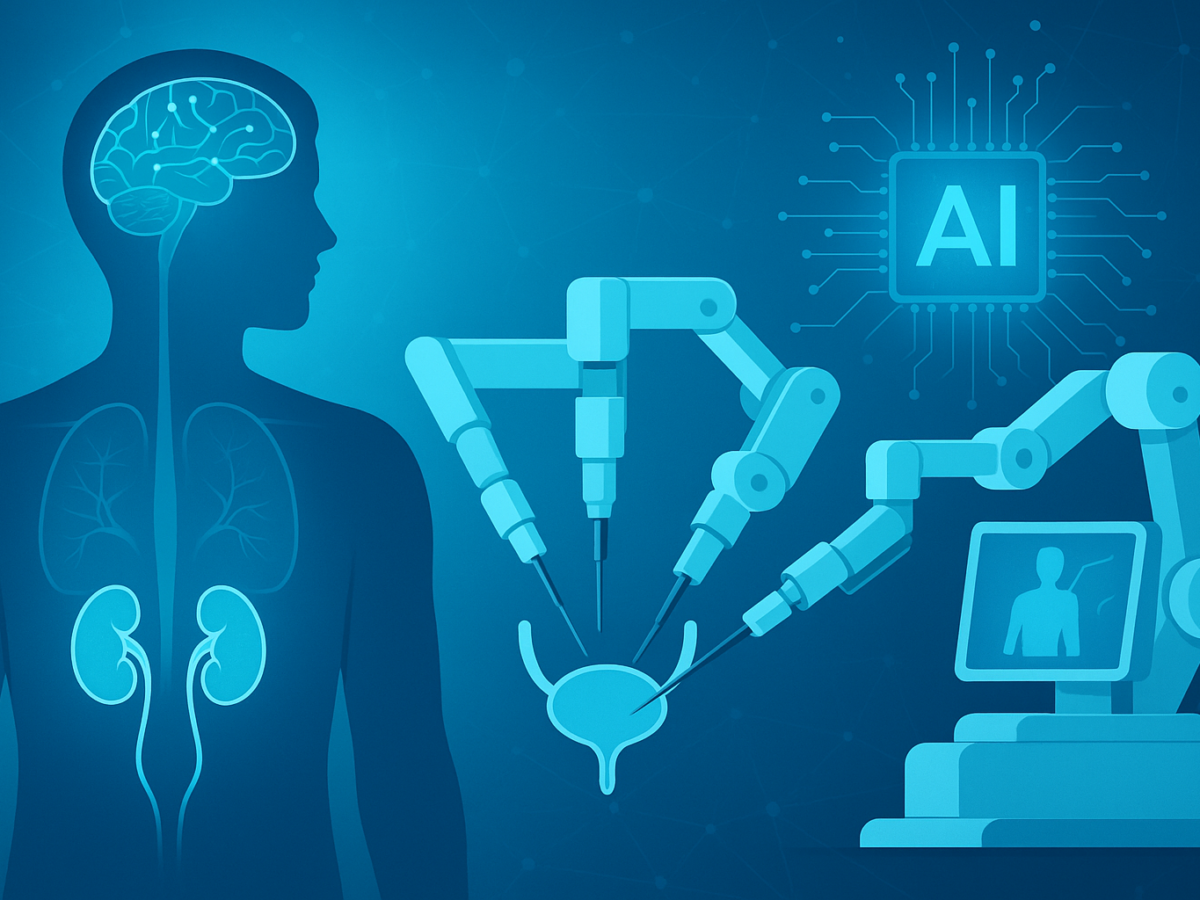Urology and Artificial Intelligence: Towards More Precise and Personalized Medicine
Modern urology is gradually integrating artificial intelligence (AI) with a dual objective: improving diagnostic accuracy and enhancing the safety and effectiveness of treatments. At the Colmar Hospital Center, expertise in robotic surgery paves the way for the thoughtful adoption of these innovative tools.
Contents
What Is AI in Urology?
Artificial intelligence encompasses technologies such as machine learning, deep learning, and large language models (LLMs), capable of analyzing massive amounts of medical data—images, patient records, biopsies—to extract patterns invisible to the human eye.
In urology, AI is applied to:
- Image analysis: prostate MRI, ultrasound, CT scans;
- Digital pathology: automated recognition of the Gleason score;
- Personalized prediction: risk of recurrence after surgery, treatment response;
- Decision support: voice assistants, auto-documentation.
Concrete Applications in Urology
AI-Assisted Diagnosis
- Gleason Score: Tools combining AI and pathologists surpass human performance (Kappa 0.872 vs. 0.799).
- Prostate Imaging: AI models applied to micro-US ultrasound reach 92% sensitivity and 68% specificity, compared to 96% and 27% for conventional methods (PSA + digital rectal exam).
These advances can help avoid unnecessary biopsies and allow for earlier diagnosis.
Enhanced Robotic Surgery
The center uses Da Vinci (X/XI) robots for highly precise procedures in prostate and kidney oncology. AI can play key roles:
- Augmented guidance via augmented reality;
- Intelligent haptic feedback to refine surgical gestures;
- Training & simulation: integrated AI for surgeon training with objective feedback.
Prediction and Follow-Up
- Predictive models to identify recurrences after prostatectomy;
- DiGA applications (mobile health) for patient follow-up, adherence, and learning.
Opportunities and Challenges
Advantages:
- Improved diagnostics (imaging & biopsies).
- Personalized treatments.
- Time savings in clinical practice and fewer errors.
- Accelerated skill development through simulation and AI.
Limitations & Challenges:
- Data quality: need for large multicenter datasets to avoid bias.
- Clinical validation: many tools remain exploratory and require prospective trials.
- Ethics & regulation: compliance with GDPR, algorithm transparency, medical liability.
What Are the Prospects for Colmar?
With its expertise in Da Vinci robotic surgery, Colmar Hospital is ideally positioned to gradually integrate AI in:
- Preoperative planning, combining imaging and algorithms;
- Intraoperative monitoring, with real-time analysis;
- Surgeon training, through augmented simulation.
This strategy continues the department’s recognized excellence (ranked 3rd in adenoma and 10th in prostate cancer by Le Point 2024).
Conclusion
AI is profoundly transforming urological practice from diagnostics to treatments and training. However, widespread adoption demands scientific rigor, data integrity, and adherence to ethical principles.
In Colmar, the alliance of advanced robotics and reasoned AI paves the way for more precise, personalized, and human-centered urology.
Would you like to explore in more detail how AI can enhance urological care at Colmar Hospital? Our teams are ready to co-develop these innovative projects. Contact us to discuss further.

